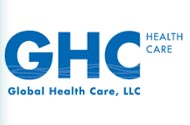
|
THE SIXTEENTH POPULATION HEALTH COLLOQUIUM
Everyone in health care is talking about population health. These two simple words -- Population Health -- describe a systematic approach to promote wellness and prevention, manage chronic diseases, and generally improve the health and wellbeing of our citizens. Because of the complex interplay of social, behavioral and economic factors that influence health, practicing population health requires lots of teamwork across groups that may not typically talk to one another, let alone attempt to work together.
Many population health programs and initiatives are underway, frequently by organizations trying to figure out "what population health is" along the way! One thing is clear -- population health is changing the landscape of health and healthcare delivery. Unprecedented provider collaborations and public-private partnerships, with the help of robust analytics and information sharing networks, are creating a new foundation that can transform care delivery and promote greater engagement and interaction.
The push toward providing consumers with on demand, seamlessly coordinated high quality services is paving the way for a disruptive, exciting and eventful time in the industry. The Sixteenth National Population Health Colloquium has assembled a stellar lineup including some of the foremost thought leaders who are helping us navigate through this revolutionary transition.
This 3-day conference will bring together healthcare providers, payers, the pharmaceutical industry, leading technology and solutions companies, academia and government to share best practices, case studies, expert insights and industry trends.
The Sixteenth National Population Health Colloquium will feature:
- Announcement of the inaugural winner of the Hearst Health Prize for Excellence in Population Health
- Population Health Training Program Certificate
- Preconference session, Best Practices for Population Health Management, with success stories from the field
- Two special dinner programs
- Four concurrent sessions: Engaging and Empowering Communities, Solutions for Managing and Improving Health, The Patient-Centered Medical Home, and Innovative Population Health Programs
- Multiple opportunities for networking with peers, including an opening night reception in the exhibit hall
The Jefferson College of Population Health is proud to serve as the Academic Partner for the Colloquium. Population health is critical to establishing better health outcomes. We are greatly encouraged by the new partnerships and collaborations whose ultimate goal is to improve the health of our population.
We hope you will join us for this exciting program!
WHO SHOULD ATTEND:
- Presidents/Chief Executive Officers/Chief Financial Officers/Chief Operating Officers
- Medical Directors
- Medicare/Medicaid Directors
- Pharmaceutical, Biotechnology and Medical Device Manufacturers
- Managed Care Executives (Medical Directors, Pharmacy Managers)
- Directors and Deputy Directors, State Departments of Public Health
- CIOs, CTOs, Vice Presidents and Directors of Information Systems
- Directors and Managers of Programs in Wellness, Prevention and Chronic Disease
- Quality Assurance and Improvement Managers
- Case Managers, Social Workers and Psychologists
- Nurses and Nurse Practitioners
- Directors and Managers of Health and Wellness Plans
- Directors of Disease Management
- Physicians and Physician's Assistants
- Alternative Medicine Providers
- Pharmacists (retail, chain and convenient care)
- Industry Analysts and Consultants
- Healthcare Sales, Marketing and Development Directors and Managers
- Human and Community Resource Managers
PROGRAM OBJECTIVES:
- Identify strategies for the design and implementation of population health programs by hospitals, health plans, and medical groups
- Discuss current and future education initiatives for healthcare leaders, clinicians, boards of governors and others within an organization
- Explain specific successful population health management programs and share best practices
- Provide an overview of challenges facing healthcare today
- Discuss how evidence-based medicine can be used to improve the health care system
- Critically assess current and proposed models of care to improve standardization, facitilitate transitions of care and accountability, and to reduce costs
- Examine the impact of innovative business models on the changing landscape
- Examine the role of analytics, data and technology
|
|

|

